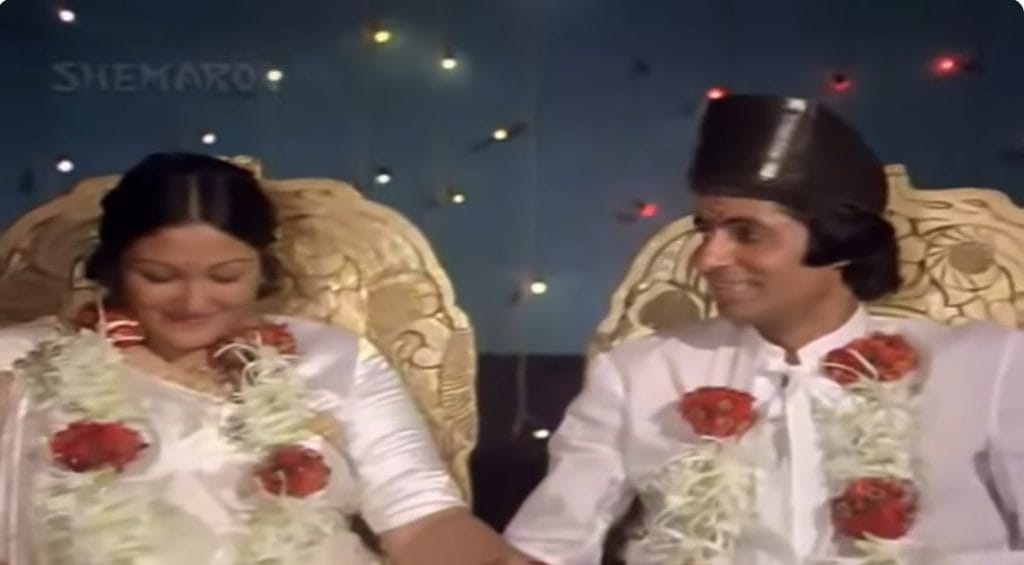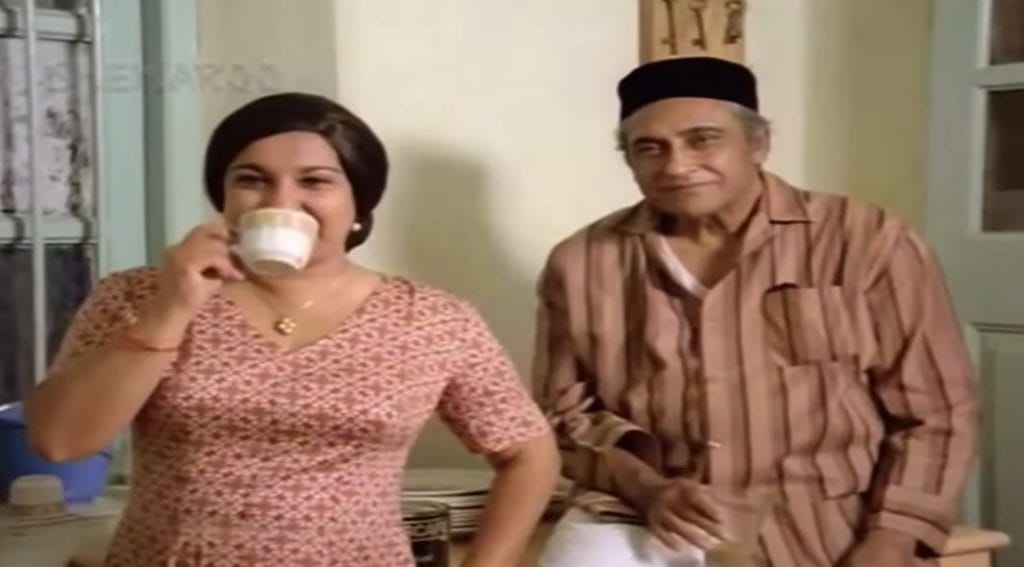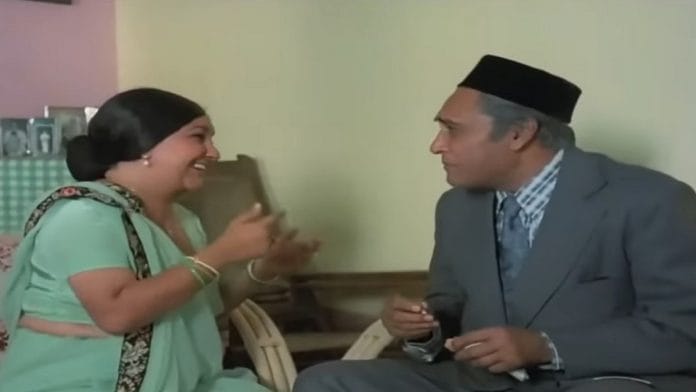Two mature single parents, each raising a brood of grown children, decide to marry. It isn’t a grand romance but a matter of convenience and companionship. It sounds simple and easy to digest. Except this isn’t a story of modern India. Basu Chatterjee’s Khatta Meetha came out in 1978, when remarriages, especially in middle age, were still a taboo.
It’s a light-hearted caper about how the Parsi couple, Homi Mistry (Ashok Kumar) and Nargis Sethna (Pearl Padamsee), navigate the changed family dynamics. He’s a widower with four children and she a widow with three.
The beauty of Chatterjee’s storytelling was that he didn’t show remarriage as something frowned upon or in need of justification. There was no grumpy auntie giving taunts, no fight against society, no melodrama, and no moral lectures.
In one scene, when Homi and Nargis discuss how their families might react to their marriage, she chortles: “Meri beti moonh pe safedi laga ke kahegi, mummy main reh gayi, aur tu…?”— My daughter will whiten her face and say, mummy, I’m still left behind, and you…?” They giggle together, unable to play coy even as they seem self-conscious about propriety.
It’s impossible to watch the film without recognising how progressive Chatterjee’s stance was. He chose not to make a fuss about remarriage, and he put his message across by avoiding any revolt or resistance to Homi and Nargis’ decision. Nothing captures the spirit of the film like its evergreen track Thoda Hai Thode Ki Zaroorat Hai, with its lyrical pragmatism. We have little, we need little.
Even today, remarrying after 40 makes many Indian households uncomfortable. Khatta Meetha presents it as a choice rooted in dignity.
It’s a perfect example of the ‘modern blended family’ well before the concept even got a name.
Also Read: Barsaat ki Raat was a rain-soaked romance. It had a qawwali that Shah Rukh Khan loves
‘This is called family’
If the remarriage plot pushed boundaries, the film’s portrait of two families merging into one was even more forward-thinking.
Modern Indian cinema has only recently begun to explore blended families, with films like Kapoor & Sons and We Are Family just scratching the surface. But Khatta Meetha did it in the late 70s without the angst-loaded drama.
The conflicts in the film were realistic: sons and daughters adjusting to new siblings, sharing a home and rooms, and learning to compromise. But these clashes never turn cruel or bitter. It’s all about the everyday negotiations and wranglings that define family life, just slightly amplified and with a sense of humour.
Observational storytelling is also a strong pillar of the film. The awkward silences, shared meals, angry glances, reluctant apologies, as well as the gradual softening of relationships.

For example, there’s a scene where Nargis’s son Firoz (Rakesh Roshan) returns home after being beaten by goons. Homi’s sons Russi (Ranjit Chowdhary) and Fali (Ravi Raaj) instantly show their willingness to fight for him, even though Firoz had been arrogant with them for days. The remorse is quickly visible on Firoz’s face.
Rakesh Roshan’s performance in this cult classic is one of his most memorable. The film wasn’t a box-office smash, but it earned critical appreciation and has since become a cult favourite. One YouTube upload has over 5 lakh views and nearly 300 comments. “Everytime I see this movie.. fill eyes with tears.. this is called family,” wrote one viewer a few weeks ago.
Also Read: Love, Bombay, middle-class — Basu Chatterjee’s ‘Rajnigandha’ is relevant even today
The power of simplicity in Rajesh Roshan’s music
No mention of Khatta Meetha is complete without Rajesh Roshan’s soundtrack. Two unforgettable songs stand out: Thoda Hai Thode Ki Zaroorat Hai and Mummy O Mummy, Tu Kab Saas Banegi.
The first captures the middle-class spirit with poetic simplicity. It mirrors the film’s tone that is hopeful, modest, and slightly philosophical. Mummy O Mummy is light-hearted, catchy, and tailored to the film’s humour, showing Roshan’s knack for blending playful melodies with everyday emotions.

Roshan’s music, not only in this film, but in that decade, from Kunwara Baap, Julie, Kala Patthar and Mr Natwarlal, was a class apart. It integrated with the movie’s narrative rather than intruding upon it. He avoided grandeur, choosing flutes, long notes, and soft harmonium touches instead. The soundscape feels like a warm hug and helped give Khatta Meetha its distinctive emotional energy.
The strength of Khatta Meetha lies in the fact that it doesn’t try to preach. It doesn’t force its progressive elements. It trusts the audience to recognise the beauty of human connection. It doesn’t get credited enough for setting the stage for a very specific kind of Indian storytelling that values subtlety over bombast, and organic human relationships over far-fetched plot twists.
The film’s lesson, if any, was to keep life simple. Thoda Hai Thode Ki Zaroorat Hai sums it up: Chhoti si ye duniya meri poori duniya hai; Ang liye, rang liye, sang chalenge— This small world is my whole world. With hope in hand and colour in our steps, we will walk together.
(Edited by Asavari Singh)






